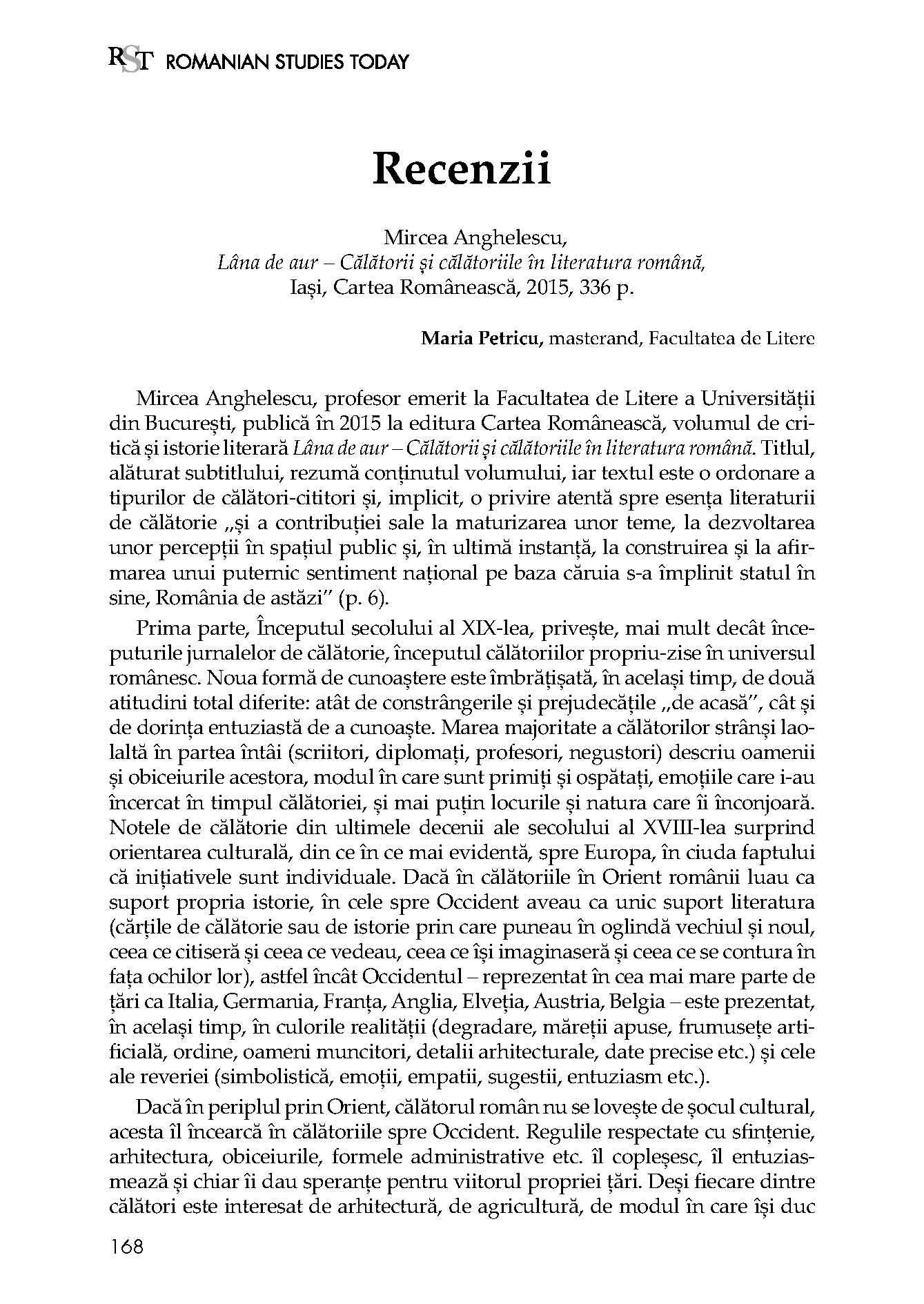In more ways than one
DOI:
https://doi.org/10.62229/rst/1.1/13Abstract
It is no longer a secret in the history of thought that a theory, a thesis, a proposal is often both borrowed and accommodated; the transit of a set of ideas from one cultural place to another may be easy, but it isn’t in itself
enough for validation or, indeed, even for disgruntled acceptance. And it is even less of a secret that what it takes for a theory to catch on is sometimes so obscure or relying on such complex arrays of social, historical and intellectual
circumstances that some have given up on defining them and have relegated them to chance. The book being reviewed here has a more optimistic outlook and, through the many contributions from its various authors, puts
forward instances of how theories – literary, psychological, philosophical – are carried over the boundaries of nations or of political blocs, how they’re being driven through the more pervious, but not always more accessible, boundaries of arts or art departments and disciplines.





